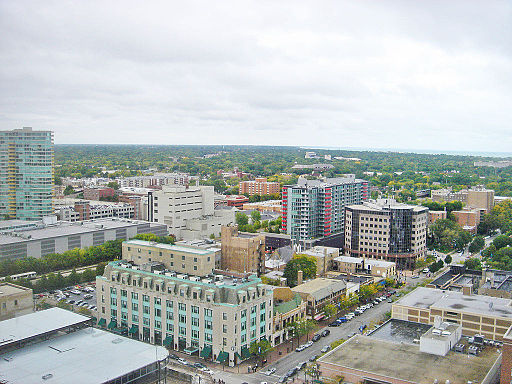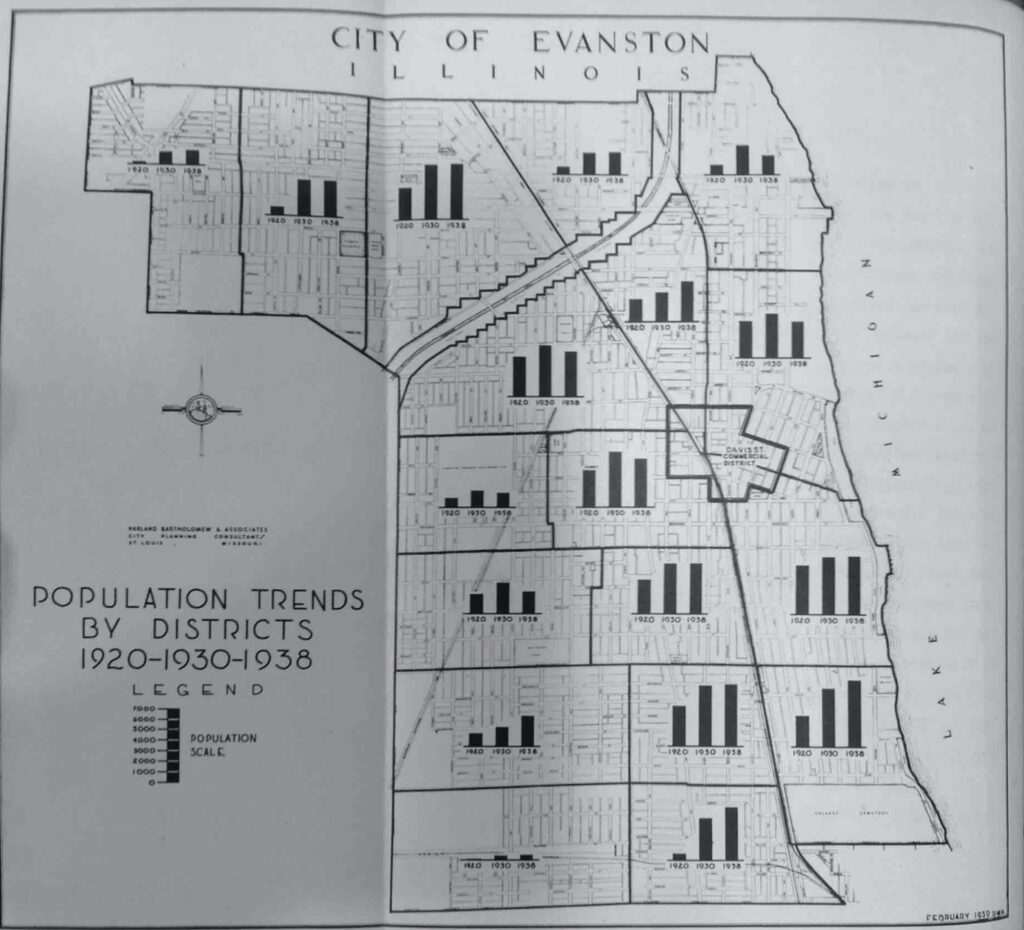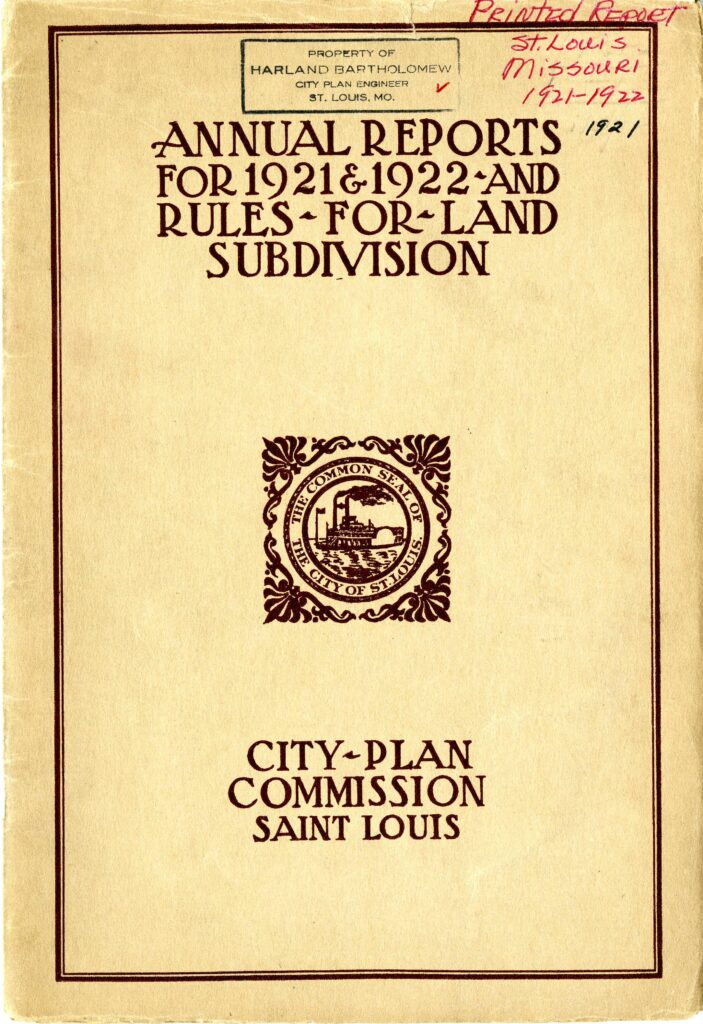
Documenting Historic Harm
In summer 2020, officials from Evanston, Illinois, reached out to local historians and asked for a report compiling evidence of the city’s history of discriminatory policies and practices from 1919 to 1969. This was to support work underway since the Evanston City Council’s November 2019 adoption of Resolution 126-R-19, “Establishing the City of Evanston Reparations Fund.”

My colleague Morris “Dino” Robinson, Jr., founder and executive director of Shorefront Legacy Center, and I set to work drafting a report that covers a broad range of topics, including discrimination in employment, schools, and businesses, along with housing and land clearance policies. Intertwined with all these topics were the city’s zoning ordinances, the first of which was adopted by the city council in 1921. The firm of Harland Bartholomew and Associates played a significant role in crafting that first ordinance and also in the subsequent revisions to the city’s zoning policies.
This led me to email the Washington University Libraries with a specific request: would it be possible to access materials in the archive collection of Harland Bartholomew and Associates? I was not sure just how such research might be conducted during a pandemic, but soon I was meeting on Zoom with Miranda Rectenwald, local history curator in the Julian Edison Department of Special Collections.

Page by page, over a document camera, Miranda led me through several zoning reports and related documents that I requested. The materials, which largely dated from the 1930s, were created by Harland Bartholomew and Associates (HBA), an urban planning firm responsible for creating zoning plans adopted by cities nationwide. (Bartholomew himself served as the urban planner for the city of St. Louis for many decades before founding the firm). I was interested in the details of the zoning plans that the city of Evanston, Illinois, had hired HBA to create.
After our virtual meeting, library staff digitized the reports I identified as the most useful and forwarded the files to us. Dino and I were then able to incorporate the material into the report we are writing for the City of Evanston to document the city’s history of racial discrimination and segregation. The report, “Evanston Policies and Practices Directly Affecting the African American Community, 1900–1960 (and Present),” was first released as a draft in August 2020. Further updates are scheduled to be published in May 2021.
The report, which has been made widely available to the public, is related to the city council’s work to establish a reparations fund focused on addressing and repairing “historic harm to the Black and African American community” caused by past racial discriminatory practices that the city had engaged. It was essential that “historical evidence ma[ke] clear the connection between the city’s actions and the suffering they caused.” (Rachel Treisman, “In Likely First, Chicago Suburb Of Evanston Approves Reparations For Black Residents,” NPR, March 22, 2021.)
In March of 2021, Evanston made headlines across the world as the first phase of the $10 million reparations program, which centers on a restorative housing program, was approved by the city council, constituting the first government reparations program in the United States.
During a global pandemic restricting travel, being able to access important records in order to complete our historical report was essential. We are grateful to the staff at the Washington University Libraries for finding a way for us to access these significant records at a very crucial time for our work.
Learn More
- About the Washington University Libraries’ Julian Edison Department of Special Collections
- Benton, Mark. “Saving” the City: Harland Bartholomew and Administrative Evil in St. Louis. Public Integrity. 20. 1-13. (2017). 10.1080/10999922.2017.1306902.
- Confronting Racism in City Planning & Zoning. Louisville Metro Planning and Design Services (StoryMap, March 29, 2021)
- Freixas, Catalina and Mark Abbott, ed. Segregation by Design: Conversations and Calls for Action in St. Louis (Springer, 2019) Washington University Access
Guest Author
Dr. Jenny Thompson is Director of Education at the Evanston History Center and a public history consultant. Her most recent book, The Takeover 1968: Student Protest, Campus Politics, and Black Student Activism At Northwestern University, was published in 2019. She can be reached at jthompson@evanstonhistorycenter.org or at jennythompson.org.
